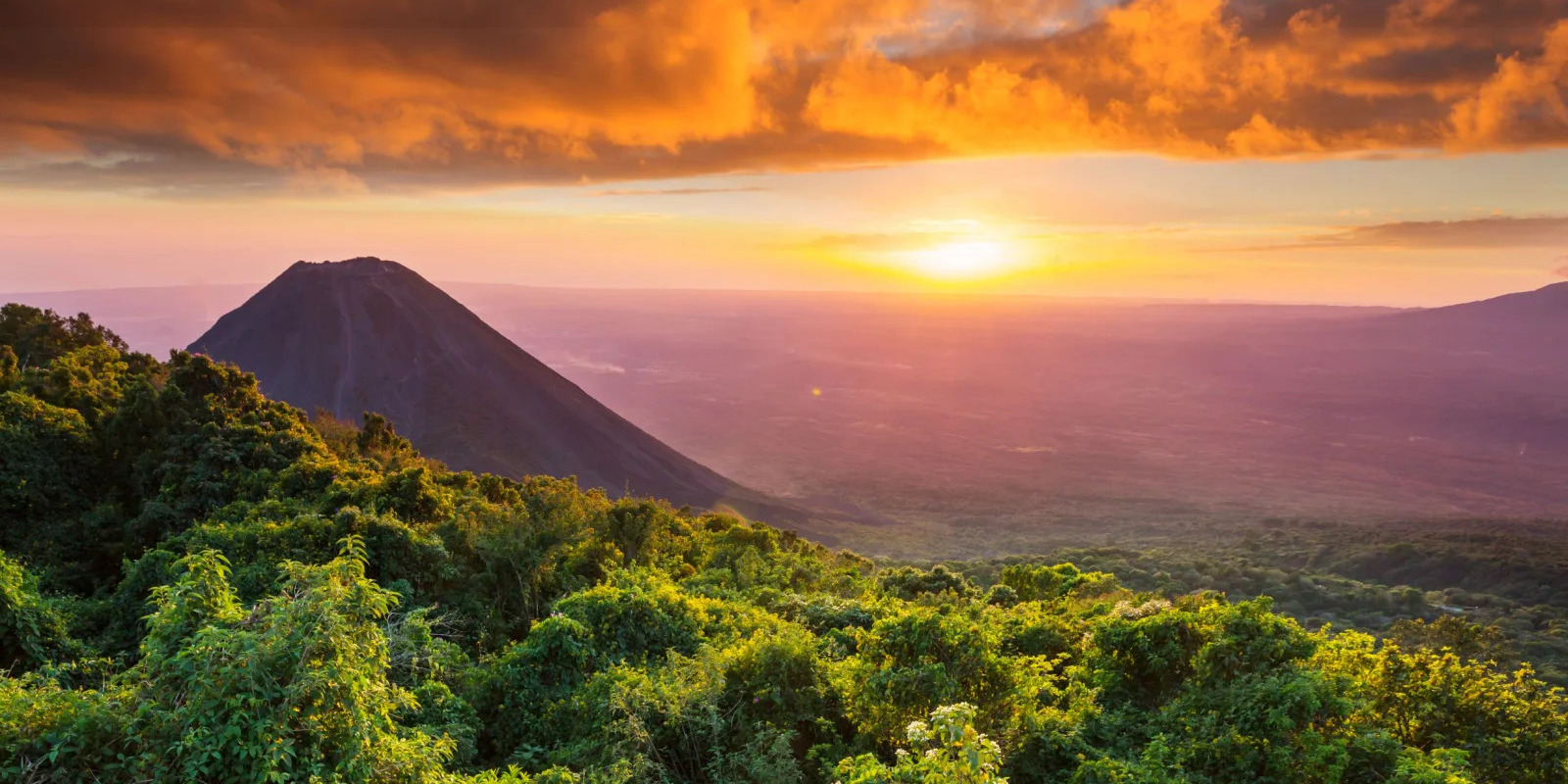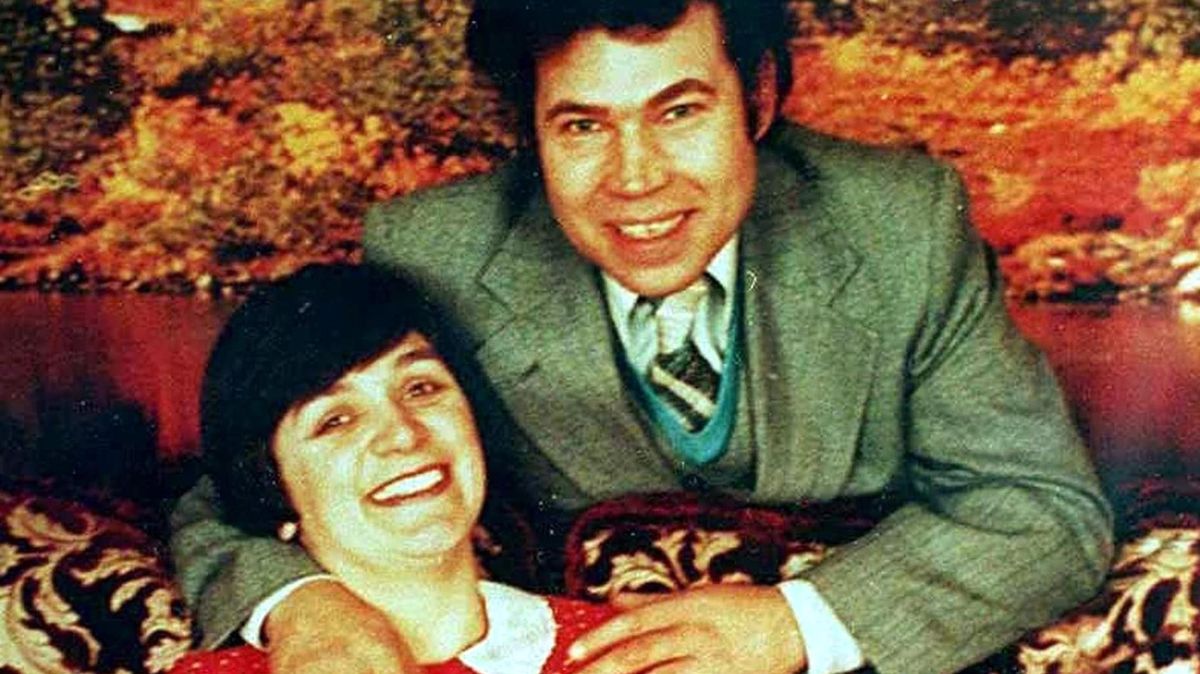
El Salvador, a small yet vibrant country in Central America, is often overlooked by travelers in favor of its larger neighbors. However, this hidden gem is filled with rich history, stunning landscapes, and a warm and welcoming culture that will captivate anyone who chooses to explore its wonders.
In this article, we will delve into 48 fascinating facts about El Salvador, shedding light on the country’s heritage, geography, cuisine, traditions, and much more. From its pre-Columbian roots to its modern-day developments, El Salvador has a story to tell that is as diverse as its people.
So, join us on this virtual journey as we uncover the many facets of El Salvador, providing you with an insight into the beauty and allure of this often-unexplored destination. Prepare to be amazed by the secrets that El Salvador holds and let it inspire you to consider it as your next travel destination.
Key Takeaways:
- El Salvador, the smallest country in Central America, is known for its volcanoes, vibrant arts, and delicious pupusas. It offers diverse landscapes, rich history, and a warm, welcoming culture.
- With a strong sense of national pride, El Salvador boasts stunning waterfalls, diverse wildlife, and a growing eco-tourism industry. Visitors can enjoy its vibrant festivals, rich coffee culture, and friendly people.
The official name of El Salvador is the Republic of El Salvador.
El Salvador, known officially as the Republic of El Salvador, is a small Central American country bordered by Honduras to the northeast, Guatemala to the northwest, and the Pacific Ocean to the south.
El Salvador is the smallest country in Central America.
With a land area of just 21,041 square kilometers (8,124 square miles), El Salvador is the smallest country in Central America.
The capital city of El Salvador is San Salvador.
San Salvador, located in the central region of the country, is not only the capital but also the largest city in El Salvador.
El Salvador is known as the “Land of Volcanoes.”
El Salvador is home to 26 volcanoes, some of which are still active. The most prominent volcano is the Santa Ana Volcano, also known as Ilamatepec, which is the highest volcano in the country.
The official language of El Salvador is Spanish.
Spanish is the most widely spoken language in El Salvador. However, there are also indigenous languages spoken by some indigenous communities.
El Salvador gained independence from Spain on September 15, 1821.
On September 15, 1821, El Salvador, along with the other Central American countries, declared independence from Spanish rule.
The currency of El Salvador is the US dollar.
Since 2001, El Salvador has adopted the US dollar as its official currency, making it the only country in Central America to use the US dollar as its legal tender.
El Salvador has a tropical climate.
El Salvador has a warm tropical climate with distinct wet and dry seasons. The average annual temperature ranges from 25°C to 30°C (77°F to 86°F).
Pupusas are a traditional Salvadoran dish.
Pupusas, a popular street food in El Salvador, are thick corn tortillas filled with cheese, beans, meat, or other ingredients.
El Salvador is famous for its surf spots.
El Salvador’s Pacific coastline offers excellent surfing conditions, attracting both national and international surfers. La Libertad and El Tunco are among the most popular surf spots in the country.
El Salvador is known for its vibrant arts and crafts.
The artistic culture in El Salvador is rich and diverse. Traditional crafts include pottery, hammocks, woven textiles, and woodcarvings.
El Salvador has a high biodiversity.
Despite its small size, El Salvador boasts a rich biodiversity, with a variety of ecosystems ranging from mangroves to cloud forests. The country is home to numerous species of flora and fauna.
El Salvador has a troubled history of civil war.
From 1980 to 1992, El Salvador experienced a civil war that resulted in significant loss of life and economic instability. The war had a profound impact on the country’s social and political landscape.
El Salvador has a population of over 6.4 million people.
As of 2021, El Salvador has a population of over 6.4 million people, making it the most densely populated country in Central America.
Cerro El Pital is the highest point in El Salvador.
Cerro El Pital, located on the border with Honduras, is the highest point in El Salvador, reaching an elevation of 2,730 meters (8,957 feet).
The El Salvador flag features blue and white horizontal stripes with the country’s coat of arms in the center.
The flag of El Salvador consists of two blue horizontal stripes representing the Caribbean Sea and the Pacific Ocean, with a white stripe in the middle. The coat of arms displays a triangle, a volcano, and five blue stars.
Coffee is one of El Salvador’s major exports.
El Salvador is known for its high-quality coffee production. Coffee farms throughout the country contribute to the economy and provide employment for many Salvadorans.
El Salvador has several UNESCO World Heritage sites.
El Salvador is home to three UNESCO World Heritage sites: Joya de Cerén, an archaeological site known as the “Pompeii of the Americas,” the Tazumal Mayan ruins in Chalchuapa, and the San Andrés Archaeological Site in Santa Ana.
El Salvador has a national soccer team.
The El Salvador national soccer team, known as “La Selecta,” represents the country in international competitions. Soccer is a highly popular sport in El Salvador, with a strong fan base.
El Salvador celebrates its Independence Day on September 15.
September 15 is a significant national holiday in El Salvador, commemorating the country’s independence from Spanish colonial rule.
El Salvador has a diverse range of wildlife.
The natural landscapes in El Salvador support a rich variety of wildlife, including jaguars, ocelots, monkeys, sea turtles, and numerous bird species.
El Salvador has a growing eco-tourism industry.
With its diverse ecosystems and natural attractions, El Salvador is increasingly becoming a popular destination for eco-tourism. Activities such as hiking, bird-watching, and exploring volcanoes attract nature enthusiasts.
El Salvador has a strong coffee culture.
Coffee is not only an important export commodity but also deeply ingrained in the culture of El Salvador. Coffee shops and cafes can be found throughout the country, offering a taste of the local brew.
El Salvador has a rich archaeological heritage.
The ancient Mayan civilization once thrived in the region that is now El Salvador. Excavations have unearthed remarkable archaeological sites, providing insight into the country’s pre-Columbian history.
El Salvador is known for its vibrant festivals.
Throughout the year, El Salvador hosts numerous colorful festivals, celebrating religious, cultural, and historical events. The Day of the Dead and the August Festival are among the most significant celebrations.
El Salvador has a democratic government.
El Salvador operates under a democratic system with a president as the head of state and a multi-party political system.
El Salvador has a rich literary tradition.
Many notable Salvadoran writers have contributed to the country’s literary heritage, including Roque Dalton, Claribel Alegría, and Manlio Argueta.
The Salvadoran colón was the official currency before the adoption of the US dollar.
Prior to 2001, the Salvadoran colón was the official currency. However, due to economic instability and the desire for financial stability, the US dollar was adopted as the official currency.
El Salvador has breathtaking natural landscapes.
From pristine beaches to dense forests, El Salvador offers a diverse range of natural landscapes that attract nature enthusiasts and outdoor adventurers.
El Salvador is vulnerable to natural disasters.
Due to its geographical location, El Salvador is prone to natural disasters such as earthquakes, volcanic eruptions, and tropical storms.
El Salvador is heavily influenced by indigenous cultures.
Indigenous peoples and their cultures have played a significant role in shaping the identity of El Salvador. Many Salvadorans proudly embrace their indigenous heritage.
El Salvador has a growing technology sector.
The technology sector in El Salvador is experiencing growth, with the emergence of startups and the establishment of tech-focused companies.
El Salvador is known for its handcrafted textiles.
The traditional textile industry in El Salvador produces beautiful handmade fabrics and garments using techniques passed down through generations.
El Salvador has a strong sense of national pride.
Salvadorans are known for their strong patriotism and love for their country. This sense of national pride is often displayed during sporting events and national holidays.
El Salvador has a diverse culinary scene.
From traditional Salvadoran dishes like pupusas and yuca frita to international cuisines, El Salvador offers a diverse range of culinary delights to satisfy any palate.
El Salvador is known for its traditional folkloric music and dance.
Folkloric music and dance play an important role in Salvadoran culture, with vibrant performances showcasing the country’s rich cultural heritage.
El Salvador has a national flower called Flor de Izote.
The Flor de Izote, also known as the Yucca flower, is the national flower of El Salvador and symbolizes the resilience and beauty of the country.
El Salvador has a well-preserved colonial architecture.
Cities like Suchitoto and Santa Ana boast beautifully preserved colonial architecture, offering a glimpse into El Salvador’s past.
El Salvador has a public healthcare system.
El Salvador has a public healthcare system that provides medical services to its citizens. Private healthcare options are also available.
El Salvador has a rich tradition of artistic expression.
From visual arts to theater and literature, El Salvador has a vibrant artistic scene, with talented artists and performers showcasing their creativity.
El Salvador is known for its stunning waterfalls.
The country’s lush landscapes are dotted with breathtaking waterfalls, such as Los Chorros de la Calera and the Waterfall Route in Ahuachapán.
El Salvador is a popular destination for birdwatching.
With its diverse habitats and abundance of bird species, El Salvador attracts birdwatchers from around the world.
El Salvador has a strong sense of community.
Salvadorans value close-knit communities and have a strong sense of solidarity, often coming together to support one another in times of need.
El Salvador has a thriving handicraft industry.
Handicrafts produced in El Salvador, such as pottery, textiles, and woodwork, showcase the country’s creativity and craftsmanship.
El Salvador has a vibrant nightlife.
From trendy bars to nightclubs and live music venues, El Salvador offers a lively nightlife scene where locals and tourists can enjoy entertainment and socializing.
El Salvador is working towards environmental conservation.
Efforts are being made in El Salvador to protect and preserve the environment, including initiatives to combat deforestation and promote sustainable practices.
El Salvador has a strong sense of faith.
Religion, particularly Catholicism, plays a significant role in the lives of many Salvadorans, shaping their values and traditions.
El Salvador is a welcoming country with friendly people.
Salvadorans are known for their hospitality and warm, friendly demeanor, making visitors feel welcome and at home in their country.
Conclusion
In conclusion, El Salvador is a fascinating country with a rich history, vibrant culture, and stunning natural beauty. It offers a wide range of attractions, from its beautiful beaches along the Pacific coast to its impressive volcanoes and lush rainforests. The country’s unique blend of indigenous and Spanish influences can be seen in its food, art, and traditions.
Despite facing numerous challenges, such as poverty and crime, El Salvador has made significant progress in recent years, particularly in the areas of tourism and economic development. It remains a popular destination for adventurous travelers looking to explore its archaeological sites, colonial towns, and national parks.
With its warm and friendly people, delicious cuisine, and diverse landscapes, El Salvador is a hidden gem waiting to be discovered. Whether you’re interested in history, nature, or simply soaking in the laid-back atmosphere, you’re sure to find something that captures your heart in this captivating Central American country.
FAQs
1. What is the capital city of El Salvador?
The capital city of El Salvador is San Salvador.
2. What language is spoken in El Salvador?
The official language of El Salvador is Spanish.
3. Is El Salvador a safe country to visit?
El Salvador has had a history of high crime rates, but tourist areas are generally safe to visit. It is always advisable to take precautions and stay informed about current safety conditions.
4. Can I drink tap water in El Salvador?
It is recommended to drink bottled water or use water purification methods while in El Salvador to avoid any risk of waterborne illnesses.
5. What is the currency of El Salvador?
The currency of El Salvador is the US dollar (USD).
6. What are some popular tourist attractions in El Salvador?
Some popular tourist attractions in El Salvador include the Mayan ruins of Tazumal, the beautiful beaches of La Libertad, the Santa Ana volcano, and the scenic Ruta de las Flores.
7. Is El Salvador known for its cuisine?
Yes, El Salvador has a rich culinary heritage with dishes such as pupusas, tamales, and yuca fritters being popular local delicacies.
8. Do I need a visa to visit El Salvador?
Depending on your nationality, you may or may not require a visa to visit El Salvador. It is advisable to check with the nearest embassy or consulate for up-to-date visa requirements.
9. What is the weather like in El Salvador?
El Salvador experiences a tropical climate, with warm temperatures throughout the year. However, it is important to note that the country has a wet and dry season.
10. Are there any UNESCO World Heritage Sites in El Salvador?
Yes, a notable UNESCO World Heritage Site in El Salvador is Joya de Cerén, an ancient Mayan farming village preserved remarkably well under volcanic ash.
El Salvador's vibrant culture, stunning landscapes, and warm hospitality make this Central American nation a true gem. Beyond these captivating facts lies even more to explore. Unravel the intriguing world of Salvadoran banking with BANDESAL's unbelievable story. Davivienda El Salvador's captivating history adds another layer to the country's financial landscape. Promerica El Salvador's extraordinary journey completes the trio, offering a comprehensive look at the nation's banking sector. Delving into these fascinating accounts will enrich your understanding of El Salvador's multifaceted identity.
Was this page helpful?
Our commitment to delivering trustworthy and engaging content is at the heart of what we do. Each fact on our site is contributed by real users like you, bringing a wealth of diverse insights and information. To ensure the highest standards of accuracy and reliability, our dedicated editors meticulously review each submission. This process guarantees that the facts we share are not only fascinating but also credible. Trust in our commitment to quality and authenticity as you explore and learn with us.


